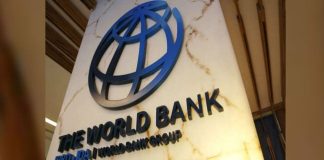The Federal Government of Nigeria’s (FGN) bond’s secondary market trading concluded in a bearish manner, pushing up the average yield by 0.25%.
Traders reported in their individual market updates that sell pressure or profit-taking across tenor instruments in the secondary market was the reason for the benchmark yield’s slight increase.
Bond with a hunger for yield Investors are still rearranging their investments to try and maximize returns. Although the interest rate on Nigerian government bonds has been negative, it is still high enough to make banks less willing to extend credit.
Fixed-interest securities analysts claim that Nigeria has been using the local debt capital market to make up for the shortfall in its budget for 2024 by selling debt instruments to investors. However, liquidity concerns have prevented rates from being adjusted as local investors expect the fixed income market to yield higher returns following tighter monetary policy.
The climate of high interest rates and inflation has changed the stance of the financial markets. On the 5, 7, and 10-Year FGN Bonds that were offered to investors at its monthly primary market auction last week, the debt management office, or DMO, increased the spot rates.
According to MarketForces Africa, the authority has so far raised N4.3 trillion of the N6.1 trillion in local borrowing needed to cover the year’s budget deficit.
In the secondary market, trading activities on Nigerian government bonds ended on a bearish note because investors’ trimmed interest in naira assets amidst uncertainties in the economy.
Traders said the market’s bearish sentiment was driven by sell-offs at the short (+30bps) and mid segments (+34bps) of the curve, particularly in the APR-29 (+124bps) and MAY-29 (+104bps) papers.
The domestic debt market has recently seen a shift, with lower borrowing amounts following a significant frontloading of debt in the first quarter of the year.













